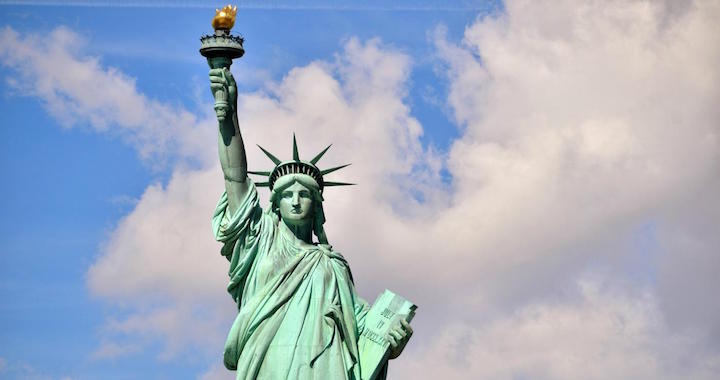President Trump signed executive orders this week to build a border wall and punish sanctuary cities. In keeping with campaign promises, his administration has also announced plans to restrict travel to the U.S. for refugees and some visa holders from Middle Eastern countries, including Iraq, Iran, Libya, Somalia, Sudan, Syria and Yemen. The fearful and reactionary nationalism of Trump’s inaugural address is quickly becoming policy in this nation of immigrants.
At his pre-inaugural prayer service, the President heard the Rev. Robert Jeffress preach from Nehemiah, declaring that building walls for security is a God-ordained task. But as any preacher knows, choosing the right text for any particular moment is a matter of discernment.
As I read the signs of the times we now face, I sense the Spirit leading us to hear the words of Deuteronomy 26, beginning with the fifth verse:
Then, standing there in front of the place of worship, you must pray: My ancestor was a wandering Aramean who went to live in Egypt. There were only a few in his family then, but they became great and powerful, a nation of many people.
Of all the descriptors God could have chosen for Abraham and his descendants, why did God choose refugee? Abraham’s homeland—the place God commanded him to leave—is the region now identified as Syria. Why was it important for the Hebrews to remember that their story began with immigration?
The descendants of Abraham, the father of faith for all Jews, Christians, and Muslims, were once Syrian refugees in Egypt. Why did they flee to Egypt? For many of the same reasons people from all over the world have fled to America. Facing dire consequences in their homeland, they sought a better life.
Throughout the history of this nation, millions of people have left their homelands and come to America. Over the past 400 years, people have come for many reasons. Some came because of economic forces so inhumane that their consequences still manifest in policies and practices today. The evil reality of slavery reminds us that not all came voluntarily. Many African people were brutally transported here against their will for the exploitation of their labor without pay. Others came to escape the ravages of war in their native lands. Still others have come in search of freedom from religious, ethnic, gender, and sexual persecution. And some came seeking opportunities to escape poverty and make a better life for themselves and their families.
Yet no matter why or how we came to America, any greatness realized within our borders is because we are all here.
The words of President Barack Obama ring resoundingly in my heart today, “We were strangers once, too, ” he said. “And whether our forebears were strangers who crossed the Atlantic, or the Pacific, or the Rio Grande, we are here only because this country welcomed them in, and taught them that to be an American is about something more than what we look like, or what our last names are, or how we worship.”
Hebrew scripture reminds us that the Egyptians grew in their disdain for the refugees in their midst. They treated them poorly and subjected them to unfair labor laws. The Egyptian Empire unfairly targeted the Hebrew refugees with propaganda campaigns designed to turn the Egyptian people against them by portraying the Hebrews as evil and a threat. Such narratives are always necessary to move the masses to act inhumanely. It is difficult to consciously oppress people we do not first detest.
So God cautioned those preparing to come and offer the first fruits of their bounty to God in worship to always remember: though they became a powerful nation, their ancestor was a homeless Aramean who sought refuge in a foreign land.
We, too, must remember the words inscribed on the Statue of Liberty:
Give me your tired, your poor,
Your huddled masses yearning to breathe free,
The wretched refuse of your teeming shore.
Send these, the homeless, tempest-tossed, to me:
I lift my lamp beside the golden door.
God is calling us to remember where we’ve come from and to become what we’ve not yet been: a diverse nation of committed in our policy to liberty and justice for all.
My prayer today and always: “He who has ears, let him hear.”

